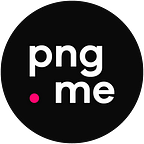COVID-19 is Accelerating the Digitisation of Lending Operations in Emerging Markets
COVID-19 has impacted nearly every industry around the world. In the financial sector, governments in OECD countries are providing more support for banks and financial institutions by allowing them to quickly provide credit and liquidity options for their businesses and customers. Deploying such measures relies heavily on a strong digital payment infrastructure, which quickly and efficiently facilitates disbursement of loan capital by banks and financial institutions to their businesses and customers. The critical part in scaling a digital payment infrastructure is high-internet usage and state support to move towards cashless societies. At a time when social-distancing have become a new normal, the digital payment infrastructure is helping banks and financial institutions provide banking services to their customers.
The implementation of these types of measures is much harder in Sub-Saharan Africa.
90% of retail transactions are cash-based and internet penetration lags behind the world average by nearly 20%. (Source United Nations)
COVID-19 has taken root in Africa, many countries have issued lockdown orders that are negatively impacting normal business operations. African banks and financial institutions are in a unique position to help businesses transform the payment transfer system from cash-centric to digital. By doing so, banks and financial institutions will not only support ongoing social-distancing measures but also prevent the risk of spreading the virus via the physical handling of money. The benefit of a digital payment infrastructure would also have a positive economic impact. In a recent article, the Economist highlighted that handling cash is expensive and transitioning to a cashless system could save the economy up to 0.5% of GDP.
Already, we are seeing the move to digitisation happening at an incredible rate with banks and MMO’s engaging with technology solutions that can combat the outbreak and in turn solve legacy issues. This is reflected in Africa currently having the fastest growing developer ecosystem.
Percentage Growth of Open Source Projects By Country:
A large proportion of this growth is focused on solving issues facing financial digitisation. At Pngme we’ve simplified these into three core problems:
1. Financial data is fragmented and unstructured
2. Existing API’s and data sources are incomplete and unreliable
3. Developer frameworks are incapable of multi-country scaling
In the face of COVID these challenges are heightened as governments and agencies are trying to channel liquidity to SMEs, households and informal workers, remotely and safely. In May, Nigeria released a fiscal stimulus package in the form of a COVID-19 intervention fund of N 500 billion (USD 1.4 billion) but is struggling to insure the cash reaches those most affected simply due to a lack of digital infrastructure. An issue seen across the African continent.
To help address the structural change needed due to the ongoing COVID-19 crisis, Pngme is providing partners like Blue Horizon and Rigo Microfinance Bank aggregated, user-permissioned financial data through an advanced, mobile-first credit scoring and loan underwriting API. Put simply, a faster, more transparent and cost effective lending model. By leveraging Pngme’s technology, our partners can build underwriting and predictive risk models in real-time using traditional and alternative data sources, which will increase loan approval rates by 48% and reduce risk by 39%. Additionally, borrowers will be able to create their individualised credit score which will accurately forecast their risk of default. Banks and lending institutions will be able to efficiently assess their borrowers’ credit risk profiles, price borrowers’ loans more accurately, scale their loan disbursement functions.
If you would like to further understand how Pngme can help increase your loan approval rate while reducing risk through an alternative data API, please request a consultation with our team using this link.
To stay updated with Pngme, please sign up for our monthly newsletters and follow us on Linkedin, Twitter, Medium, and Facebook.
